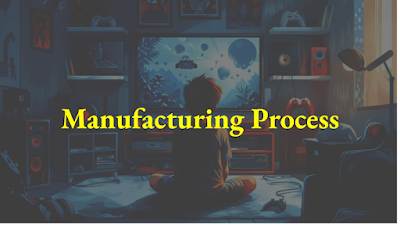Unit 1: Fundamentals of Manufacturing Processes
Subject: Manufacturing Process I
Unit 1: Fundamentals of Manufacturing Processes
Manufacturing
Manufacturing
is the process of converting raw materials, components, or parts into finished
goods that meet a customer's expectations or specifications.
Manufacturing Process
Manufacturing
engineering or manufacturing processes are the steps through which raw
materials are transformed into a final product.
Example: Forming , Casting, Joining Process etc.
Classification of Manufacturing
Processes
Manufacturing
processes are broadly classified into following categories –
1.
Forming processes,
2.
Machining processes,
3.
Casting Process,
4.
Joining processes and
5.
Finishing processes
Forming
is a primary manufacturing process in which raw material is permanently
deformed into desired shape such that the stress induced in the work-piece is
more than yield stress but less than ultimate stress.
Examples: Rolling, Forging, Extrusion, Press-working etc.
Machining Processes:
Machining
is a primary manufacturing process in which excess material is removed from the
work-piece or, job or, blank in the form of chips with the help of cutting
tools. This process is also called Metal Cutting.
Examples: Turning, Drilling, Milling etc.
Casting Process:
Casting
is a primary manufacturing process in which molten metal (liquid metal) is
poured and allowed to solidify in a predefined mould cavity and after
solidification by breaking the mould required shape of object can be produced.
Examples: sand casting, die casting etc.
Joining Processes:
Joining
is a process that is used to connect two or more similar or dissimilar
components or materials together to form a unified structure.
Examples: Welding, Soldering and Brazing etc.
Finishing Processes:
Finishing
is a secondary manufacturing process in which a desired surface
characteristics, dimensions, and properties can be achieved such that the final
product can meet specific functional, aesthetic, or performance requirements.
Examples: Grinding, Polishing, Surface Coating etc.
—------


Comments
Post a Comment